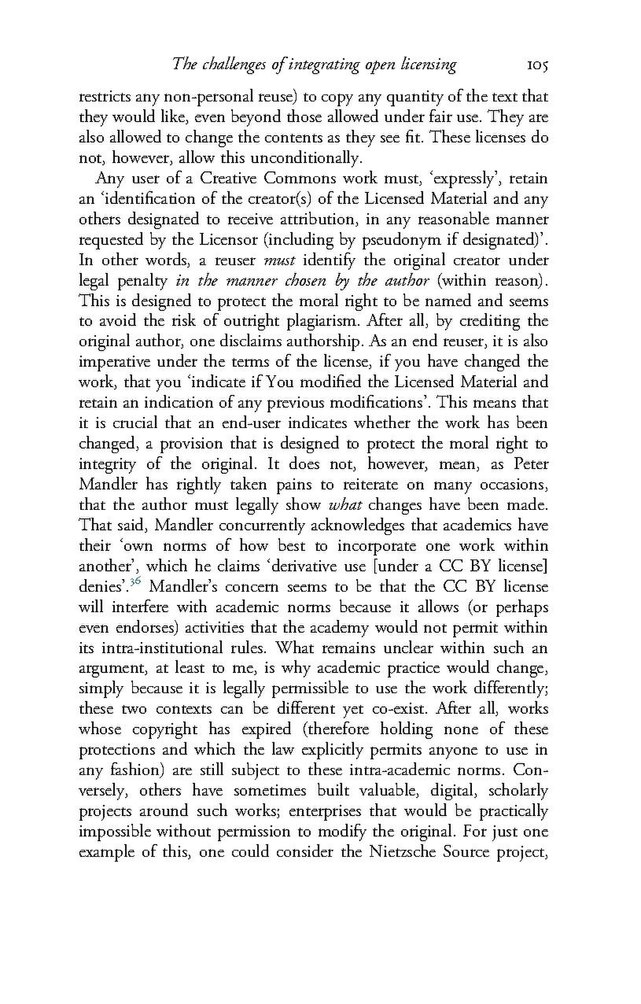restricts any non-personal reuse) to copy any quantity of the text that they would like, even beyond those allowed under fair use. They are also allowed to change the contents as they see fit. These licenses do not, however, allow this unconditionally.
Any user of a Creative Commons work must, ‘expressly’, retain an ‘identification of the creator(s) of the Licensed Material and any others designated to receive attribution, in any reasonable manner requested by the Licensor (including by pseudonym if designated)’. In other words, a reuser must identify the original creator under legal penalty in the manner chosen by the author (within reason). This is designed to protect the moral right to be named and seems to avoid the risk of outright plagiarism. After all, by crediting the original author, one disclaims authorship. As an end reuser, it is also imperative under the terms of the license, if you have changed the work, that you ‘indicate if You modified the Licensed Material and retain an indication of any previous modifications’. This means that it is crucial that an end-user indicates whether the work has been changed, a provision that is designed to protect the moral right to integrity of the original. It does not, however, mean, as Peter Mandler has rightly taken pains to reiterate on many occasions, that the author must legally show what changes have been made. That said, Mandler concurrently acknowledges that academics have their ‘own norms of how best to incorporate one work within another’, which he claims ‘derivative use [under a CC BY license] denies’.36 Mandler’s concern seems to be that the CC BY license will interfere with academic norms because it allows (or perhaps even endorses) activities that the academy would not permit within its intra-institutional rules. What remains unclear within such an argument, at least to me, is why academic practice would change, simply because it is legally permissible to use the work differently; these two contexts can be different yet co-exist. After all, works whose copyright has expired (therefore holding none of these protections and which the law explicitly permits anyone to use in any fashion) are still subject to these intra-academic norms. Conversely, others have sometimes built valuable, digital, scholarly projects around such works; enterprises that would be practically impossible without permission to modify the original. For just one example of this, one could consider the Nietzsche Source project,
